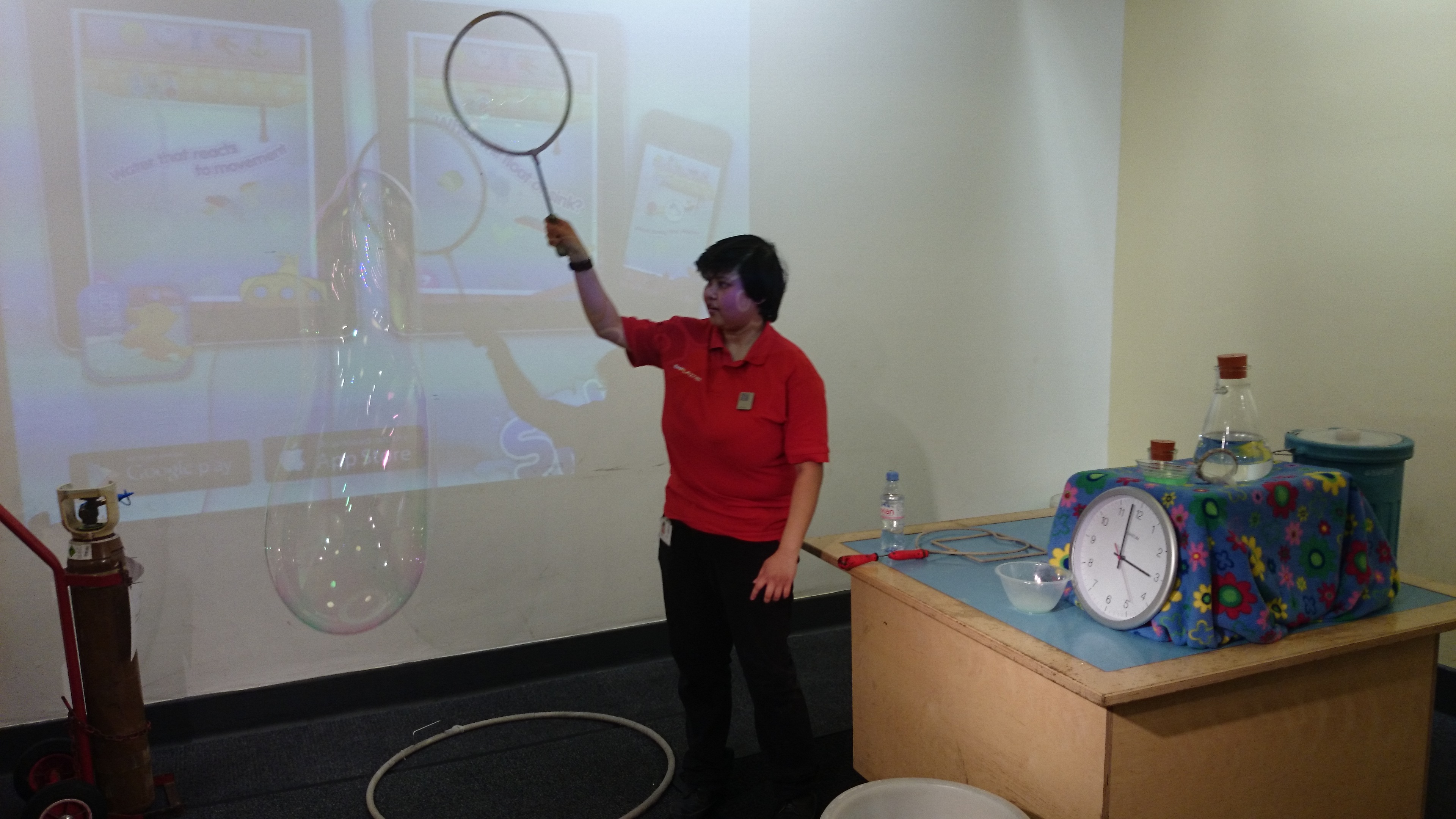MIST
Magnetosphere, Ionosphere and Solar-Terrestrial
Public Engagement and Me
by Affelia Wibisono
Affelia Wibisono is a first year PhD student at the Mullard Space Science Laboratory (University College London). Alongside her research into Jupiter’s x-ray aurorae, Affelia is involved in a wide variety of public engagement activities. In this post Affelia talks about her experiences doing public engagement and ways to get more involved yourself!
My Experiences in Public Engagement
Public engagement is something I’m passionate about. In fact, I had a career in science communication for 6 years before starting my PhD at MSSL. It was something that I knew I wanted to do since I was at school, so I took part in as many outreach activities as I could during my undergraduate studies. I also worked as a summer intern at Winchester Science Centre and Planetarium and even had the chance to take part in the BBC’s Bang Goes the Theory Roadshow whilst I was there.
Me with Liz Bonnin, one of the presenters of Bang Goes the Theory, during my summer internship at Winchester Science Centre and Planetarium.
After graduation, I started working at the Science Museum in London as an Explainer where I did pretty much that: I explained the science behind the exhibits in the Launchpad (now known as Wonderlab), Pattern Pod and The Garden interactive galleries. I got to engage with a variety of people - from toddlers to their nannies, from Year 1 classes to A-Level students, science enthusiasts, international visitors and even people who wanted to impress their dates. By far my favourite part of the job was to present science shows with a lot of demos and audience participation. I had two shows, my first was “Flash! Bang! Wallop!” which was about explosions and was obviously great fun to perform! Who wouldn’t want to blow a squib or fire Barbie out of a cannon?! My second show was “The Bubbles Show” and was for younger children. One of my highlights was when I had 200 people (yes, including the adults) shout “WE LOVE BUBBLES! WE LOVE BUBBLES!” at me.
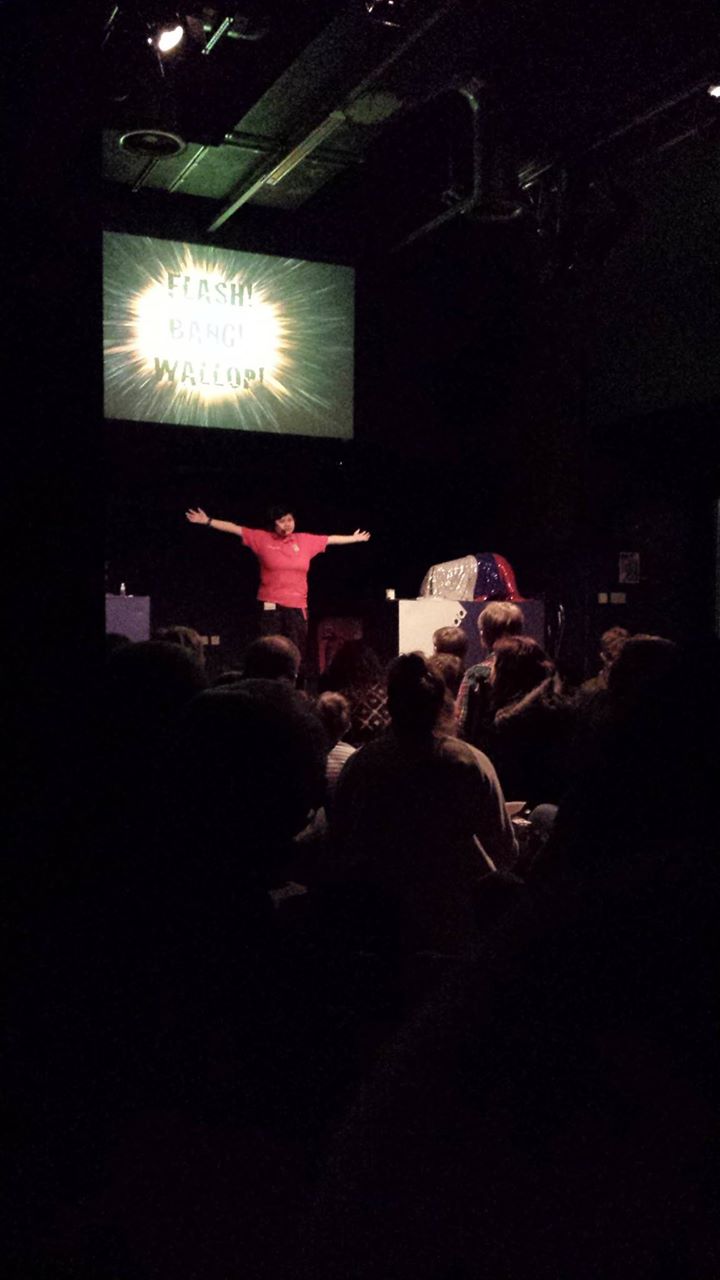
Presenting my two science shows at the Science Museum.
I then moved on to the Royal Observatory Greenwich (ROG) where I coordinated the schools programme and was in charge of the day-to-day running of the onsite activities. Making sure 300 students and teachers were in the right place at the right time amongst other visitors in a relatively small building was challenging at times! I also presented planetarium shows and led workshops, again for a whole range of audiences, and even gave talks at festivals such as the Royal Society Summer Science Exhibition, Camp Bestival and Space Rocks. It was at the ROG where I truly developed my writing skills. I was lucky enough to write posts for their blog, articles for newspapers, and short pieces for the Insight Astronomy Photographer of the Year books. Our online audience was also very important to us, so I was also involved in the ROG’s Live Streams, animated videos and podcasts. Something I never thought I would get to do was give media interviews. My very first was a live interview about New Horizon’s flyby of Pluto for a South African radio show. Since then, I’ve spoken to journalists about Tim Peake, the Great American Eclipse of 2017 and various astronomical events amongst other things for TV, radio, print and online.
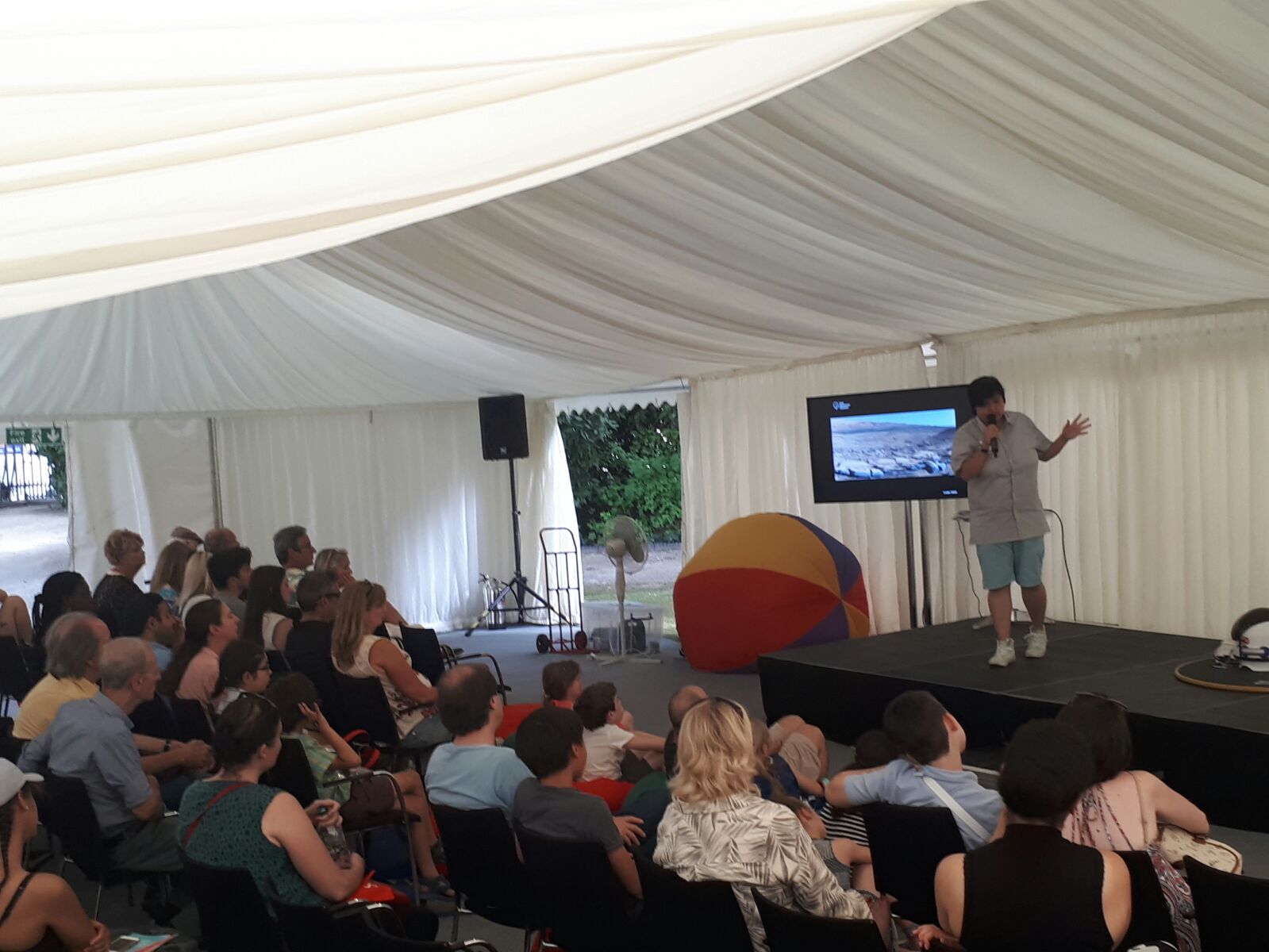

Left: Presenting at the Royal Society Summer Science Exhibition. Right: My piece for The Guardian about the Perseids meteor shower.
Since I started at MSSL in September 2018, I’ve taken part in a number of public engagement activities. Some of them were small scale and required very little preparation like running a workshop for a group of scouts or visiting a local school. Others needed more planning like giving a public lecture at the ROG (I was asked to do this before I’d even left my full time job there!) or being interviewed for a short film about the 50th Anniversary of the first lunar landing.
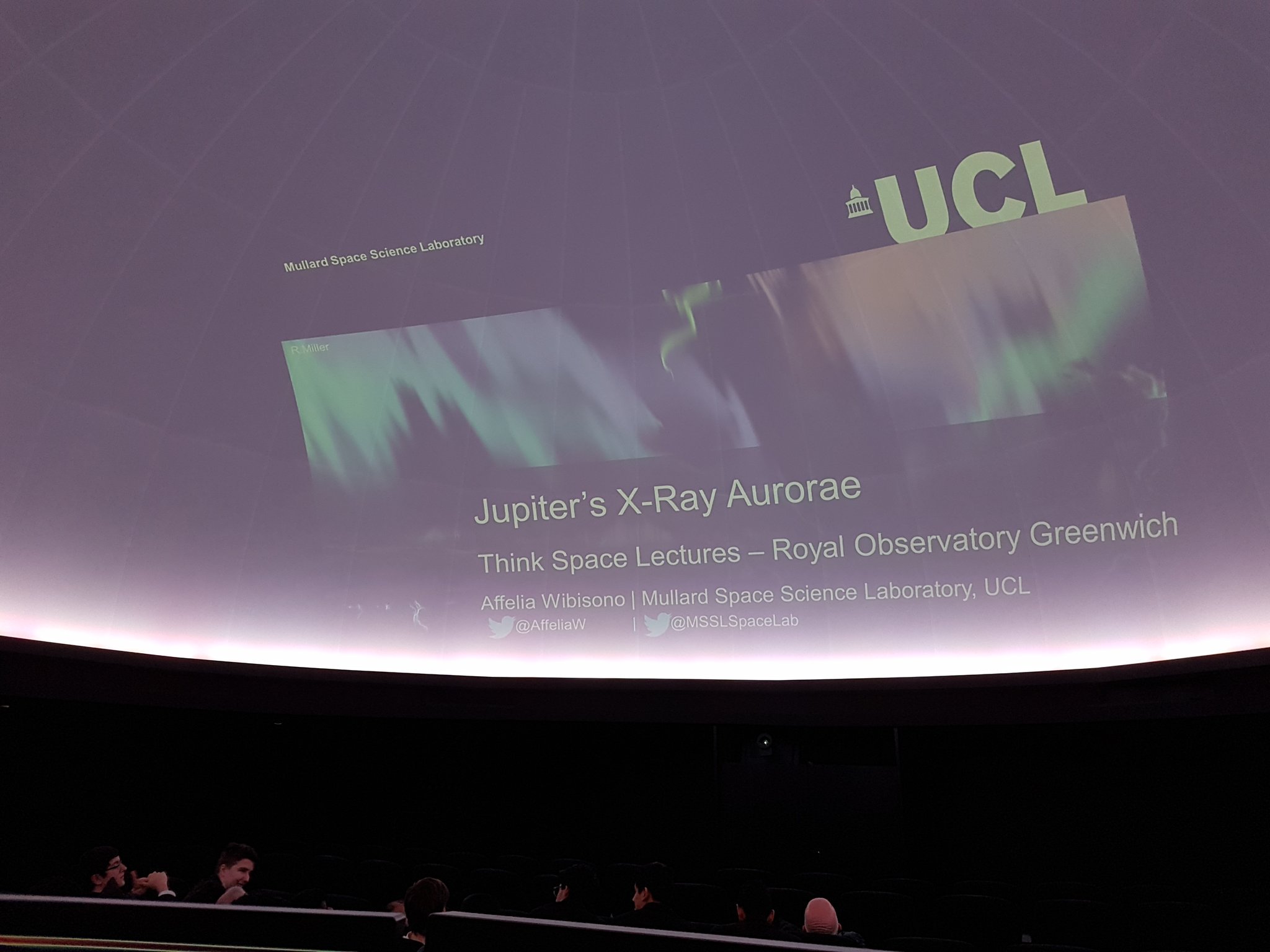
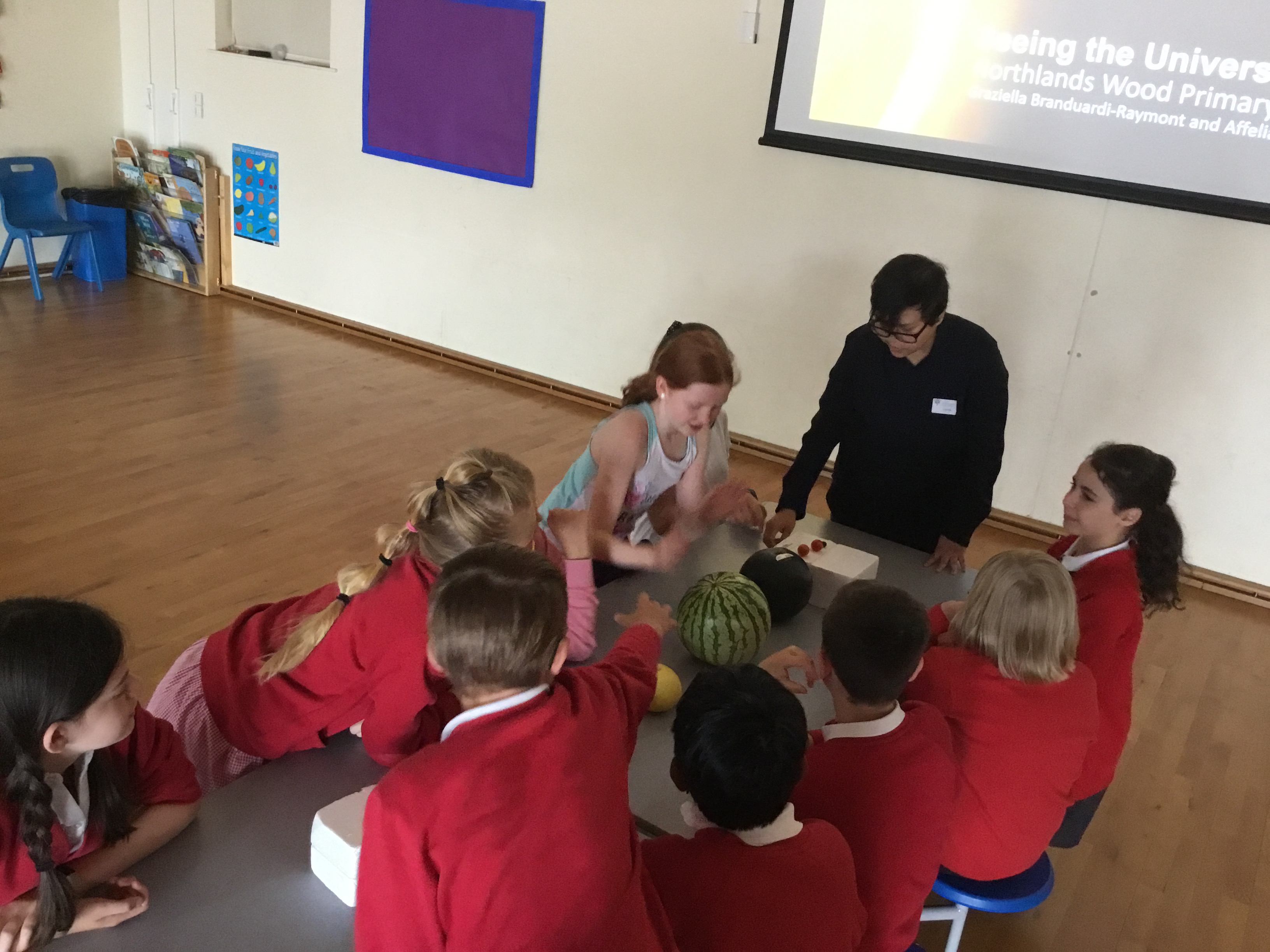
Left: My public lecture at the ROG’s Peter Harrison Planetarium. Right: Using fruits to show the relative sizes of the planets in our Solar System to some primary school pupils.
I’m grateful that both of my supervisors do a lot of outreach themselves and are very supportive of me doing the same. I still work at the ROG and present planetarium shows and school workshops when they need someone to cover. I can accept and reject shifts as I like so I can fit them around my work at MSSL and other commitments. I was asked by Jasmine to write about how I manage my time between public engagement and research, and to be honest, I don’t know if I’ve done that successfully yet. I limit myself to no more than 2 days at the ROG per month and make myself unavailable to work there for at least two weeks before a Big Deadline or conference. Before saying yes to any outreach requests at MSSL, I check what my schedule looks like around the time of the event. If it looks clear(ish), I ask myself these questions: 1) Will I enjoy it? 2) Will I gain any new experience, skills or contacts by doing it? 3) Am I the best person to do it or is the event better suited for someone with a different expertise? Public engagement should benefit you and your audience.
Why do Public Engagement?
My belief is that engaging the public is just as important as the research that we do as PhD students. Some research councils, such as STFC, require those they support to do a certain amount of outreach. Interacting with non-specialists is a great way to share your passion for your work and I often find myself more motivated to continue with my research afterwards because they remind me that Jupiter’s X-ray aurorae are freaking awesome. Their questions can really test your understanding and even give you ideas as to where to take your research next.
Public engagement allows you to develop skills that can be transferred to your research and beyond. The most obvious being your communication skills. There’s no doubt in my mind that my experience in public engagement has helped with every presentation, report and funding application I’ve produced during my PhD so far. It allows you to grow your professional contacts and develop your team working skills. I’ve already mentioned time management, but it can also help improve your people management and leadership skills too. If you can successfully get 30 teenagers to do what you ask them to, you can do it to anyone. I love coming up with new demos and new activities to engage the public with because I get to be creative and practise my problem solving skills.
I’d like to think that I’ve sparked scientific interests in some of the young people I’ve worked with and helped them to build their confidence. If they decide that they want to continue studying science then that’s great. But they won’t all grow up to be scientists, and that’s ok. My hope is that they have a newfound appreciation for the Universe and enjoyed themselves whilst doing so. That’s enough for me.
Last but definitely not least, it’s fun!
What kind of Public Engagement can I do?
There are so many things you can do! You could organise something through your department, like an open day or work experience week for A-Level students. Your university probably has an Outreach or Widening Participation team that could offer advice and resources. There are already existing programmes with guaranteed audiences like Pint of Science, Soapbox Science (for women researchers), and the online based I’m a Scientist Get Me Out of Here that you can get involved in. I’m a Scientist is a two week long competition in which scientists from a wide range of disciplines are split into several groups. The winning scientist from each group receive £500 to communicate their research with the public. School students (from both primary and secondary schools) ask questions for the scientists to answer at any time between the two weeks. There are also live chats that last 30 minutes each and can be very intense as the aim is to answer as many questions from the children as possible. To be honest, I never saw it as a competition but as a chance to interact with many young people without too much effort.
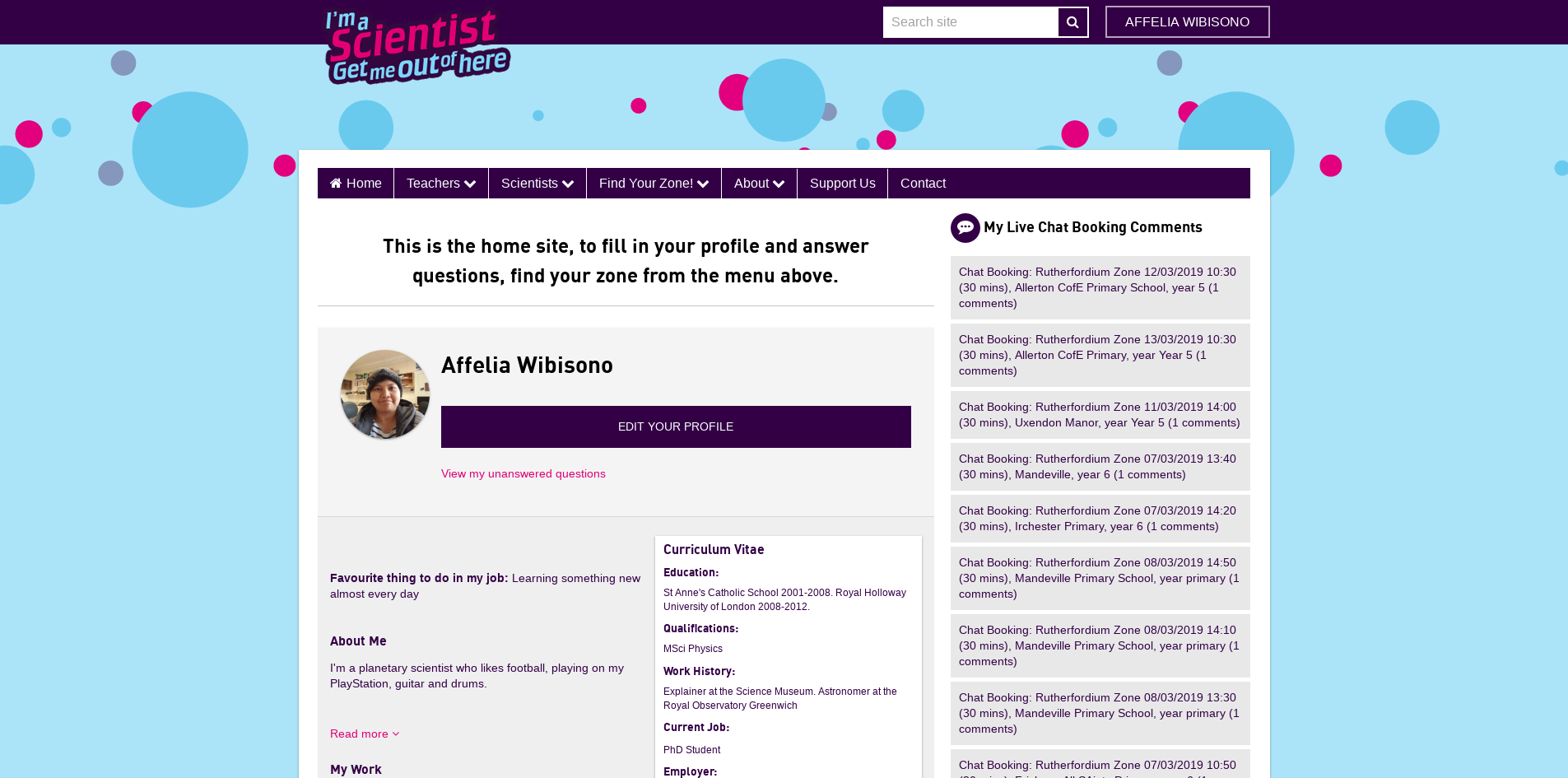
My I’m a Scientist Get Me Out of Here profile
Schools and astronomical societies are always looking for expert speakers. They may contact your department or you could sign up to be a STEM Ambassador. Teachers and group leaders advertise their events on the website and you can volunteer to do as little or as many as you want.
You can go down the digital route by writing a blog, recording podcasts or starting a YouTube channel. Your university might have one of these already that you can help with. MSSL has a podcast called Thinking Space and with the help of other first year PhD students and Professor Geraint Jones, the creator of the podcast, I recorded an episode about our first few months at MSSL for prospective students. If that sounds like too much then you can use Twitter or Instagram to engage the public with your work.
It’s super important to remember that there is no such thing as the “general public”. Public engagement is most effective when you have a clear idea of who your target audience is. This could be based on their age group, shared interests or needs. This will help you decide what kind of activity you do.
Training and Funding
There’s a lot of support for researchers who want to do more public engagement. Look out for training opportunities run by your universities. There’s a number of mailing lists and communities you can be a part of that provide training and are great ways to meet other public engagement doers and professional science communicators. Three that I’m a member of are the PSCI-Comm mailing list, BIG and the Presenter Network. I find the Presenter Network especially helpful because you get to meet a wide variety of presenters, including actors, comedians, museum workers and YouTube presenters. It was founded by the ROG but it has now grown and has several hubs around the country (and even internationally!) so if you’re not based in London, chances are there’s a hub near you. We meet every 2 or 3 months at different places (different organisations take it in turns to host (e.g. the ROG, the Science Museum, ZSL London Zoo) and share best practice about different aspects of presenting. There is now an annual conference every September at the ROG. Best thing is that it’s all free! Organisations like the NCCP, IOP, STFC, the Royal Society and the RAS offer grants that you can apply for if you have a public engagement idea you want to come to life.
I hope this has been helpful and have fun out there!
If you have any questions about Affelia's post and how to get involved with public engagement, then you can This email address is being protected from spambots. You need JavaScript enabled to view it..
